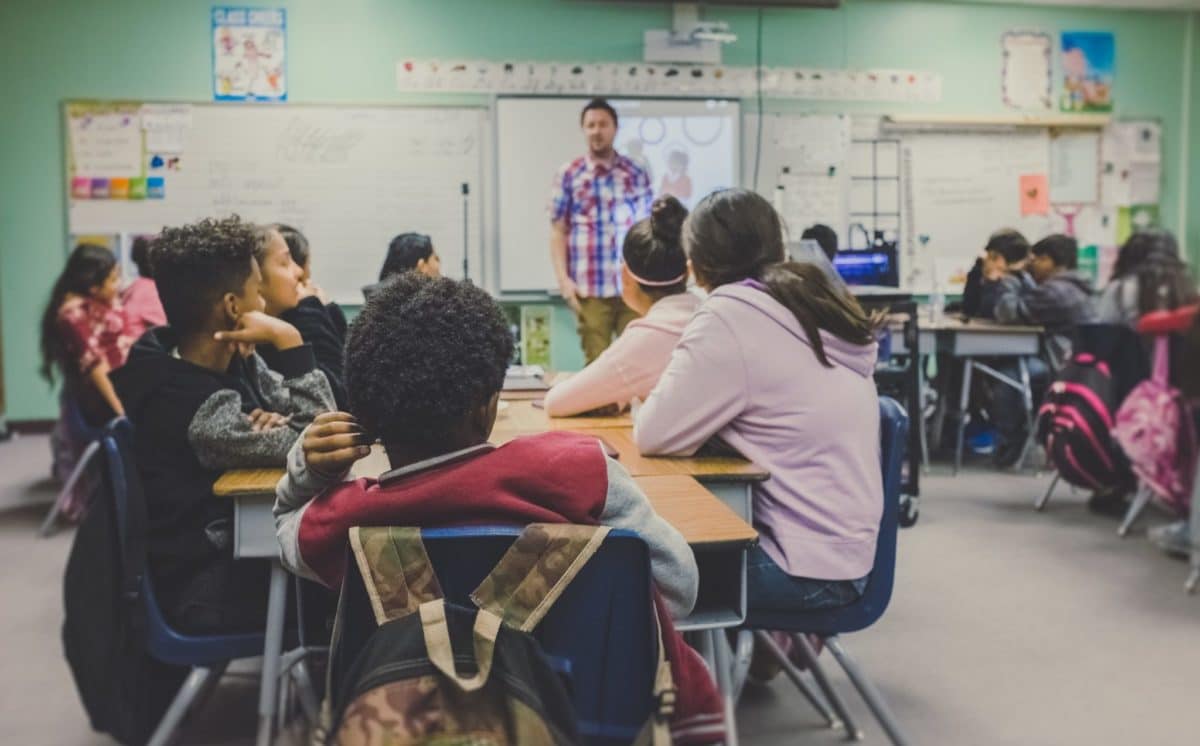Many parents feel joy and relief upon finally giving their child medical marijuana to treat debilitating seizures and other conditions. They may have struggled for years with cocktails of pharmaceutical drugs and their side effects.
Numerous states with legal medical marijuana—from California to Florida to New Jersey—allow its use for patients under age 18 who have qualifying conditions, like epilepsy. But that doesn’t always extend to the classroom, where students may most need their medicine.
Lawmakers in Maryland are hoping to make it easier for schoolchildren. House Bill 617 would require state education officials to instruct schools to give kids their medical marijuana if necessary during school hours, during after-school activities and on school buses.
Currently, state law requires parents or caretakers to remove their kids from school to give them this medication. For parents like Jason and Stephanie Pippen, this means their two teenagers cannot attend schools with other children. Their children have severe epilepsy and developmental disorders, and marijuana is the best relief they have found. The Pippen kids are currently educated through their county’s home and hospital teaching program, so they can get medical marijuana whenever needed.
The Pippens first legally purchased medical marijuana for their kids after Maryland opened sales in 2017. “We were able to try all varieties of products, and over time we found cannabis was a fantastic seizure rescue,” Stephanie told Filter. “In the last two years we tweaked their schedules and got each child stable, using one therapeutic anti-epileptic drug and cannabis as rescue.”
Pippen said that weaning her kids off of epilepsy drugs has improved their health and spared them debilitating side effects. “Most importantly, not using benzodiazepines as a seizure rescue has fully enabled our children to recover better,” she said. “In fact, my daughter, who used to visit the emergency room several times a year, hasn’t been back in two years.”
Delegate Nic Kipke (R), the state lawmaker who introduced the bill to allow medical marijuana in schools, estimated to Capital Gazette that the legislation would affect over 150 children throughout the state—and possibly more, if other families become aware that medical marijuana is an option for their kids.
But many teachers and faculty are less enthusiastic. Educators and other groups have written to lawmakers in concern, worried that the bill will require them to break federal law by administering medical marijuana, which despite state laws remains illegal under the Controlled Substances Act.
“Anne Arundel County Public Schools has concerns with the mandate in this bill requiring school systems to have a policy on the administration of medical cannabis because cannabis is still illegal under federal law and considered a Schedule I drug with no exceptions made for medical cannabis,” Jeanette Ortiz, a county education official for the Pippens’ school system, told Capital Gazette.
“By requiring the adoption of a written policy regarding the administration of medical cannabis,” she continued, the bill “puts local school systems at risk of federal scrutiny and at risk of potential loss of federal funding.” A statewide educators board also cautioned lawmakers that it would only support the bill if it excluded nurses from being required to give kids marijuana.
The issue of schools allowing or prohibiting medical marijuana has erupted in other jurisdictions. In September, the Washington, DC Council adopted an emergency measure to require schools to allow students to consume medical marijuana on campuses. Health administrators are also allowed to give marijuana to kids.
In October, California lawmakers voted to allow medical marijuana use on school campuses. But only parents and caretakers, not teachers or nurses, can give it to students. The law excludes smokable or vaporized forms of marijuana, and cannabis can’t be stored by the school.
After Florida legalized medical marijuana in 2016, state officials ordered school districts to create their own medical marijuana policies for student patients. In Miami-Dade County, for example, schools allow only parents and caretakers to give their kids marijuana, but they can do so on school grounds. Caretakers must register with the school. Like California, the district excludes smoked or vaporized marijuana.
Illinois also allows students to receive medical marijuana in schools, but state law does not require any school employee to give it to them. Marijuana use must not disrupt the learning environment or expose other students to it, states the Illinois Association of School Boards.
Colorado has perhaps the most expansive school marijuana policy. In 2018, lawmakers approved a measure that allows school nurses to give medical marijuana to kids with parental approval.
Despite the political challenges ahead, Pippen is undaunted—and fighting for further cannabis reforms. Besides working on the issue that impacts her own children, she and other advocates are also fighting for the rights of workers to use medical marijuana without being fired or discriminated against by employers.
“All in all, we need access in schools, and everywhere vulnerable patients need the relief of their medication, as recommended,” she said. “I wish we could use it in medical centers, daycares and rehabilitation centers. But these are baby steps. We need a federal de-scheduling of cannabis to properly research it.”
Photo by NeONBRAND on Unsplash.





Show Comments